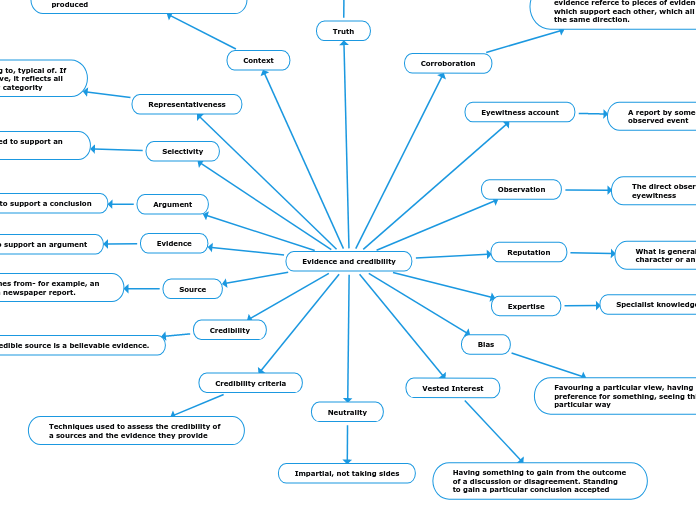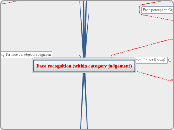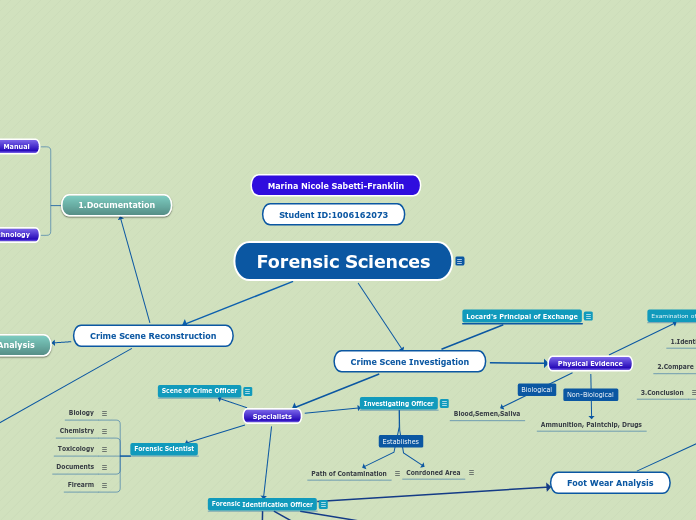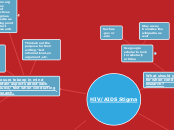Evidence and credibility
Establishing the reliability of information is crucial, particularly when it involves supporting arguments and drawing conclusions. Various factors contribute to the trustworthiness of evidence, such as its source, which can range from eyewitness accounts to media reports.
開啟
Evidence and credibility Truth Something which is accurate and correct Context The setting or situation in which evidence is produced Representativeness Standing for, corresponding to, typical of. If an evidence is representative, it reflects all the evidence in a particular categority Selectivity The choiceof eevidence used to support an argument Corroboration Confirming, giving support to. Corroborative evidence referce to pieces of evidence which support each other, which all point in the same direction. Eyewitness account A report by someone who has a personally observed event Observation The direct observation of an event by an eyewitness Reputation What is generally thought about a person's character or an organisation's standing Expertise Specialist knowledge, skills and experience Bias Favouring a particular view, having a preference for something, seeing thing in a particular way Vested Interest Having something to gain from the outcome of a discussion or disagreement. Standing to gain a particular conclusion accepted Neutrality Impartial, not taking sides Credibility criteria Techniques used to assess the credibility of a sources and the evidence they provide Credibility A credible source is a believable evidence. Source Where the evidence comes from- for example, an eyewitness account or a newspaper report. Evidence Information used to support an argument Argument A reason or reasons to support a conclusion









